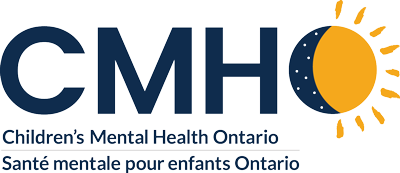Ontario schools have reopened, but the kids—and their mental health–are still in crisis. While in-person learning is critical to a young person’s development, reopening schools does not magically solve the long-standing problems in kids’ mental health care.
Children and youth mental health is in a state of emergency in Ontario.
Prior to the pandemic, 28,000 kids were on wait lists across Ontario, waiting for child and youth mental health services. In some cases, kids were tragically waiting up to two years for the specialized treatment they needed. For some families, the treatment they need is not available in their community at all.
In addition to those on wait lists, more than 140,000 kids receive treatment and services through our centres every year. Data from the Canadian Institute for Health Information (CIHI) showed that between 2006-07 to 2017-18, the number of children and youth making emergency department for mental health concerns increased 83%; the number who were hospitalized increased by 90%. It’s a clear sign that too many children and youth were in crisis and unable to get the ongoing treatment and care they need. But hospital admissions are not the only indicators of the tremendous challenges children and young people face.
We are only now starting to see early data on the pandemic’s effect, and it may be years before we see its true impact.
What we are learning through research is that kids’ mental health has been deeply impacted. Our child and youth mental health centres are reporting more kids are reaching out for services and the intensity of illness they are experiencing has significantly increased.
With nearly two years of living through waves of the virus and so much instability, it’s not just the closure of schools that has impacted kids’ mental health.
It’s the cumulative impact of social isolation, stress on families, school closures and racial inequities.
In a study by SickKids, more than 70 per cent of kids reported a worsening in their mental health since the start of the pandemic. For many kids, their mental health will improve with a return to regular supports, but for those with more significant mental health issues treatment will be required.
Children’s hospitals have reported significant increases in the number of youth going to emergency departments with eating disorder issues and substance use. One children’s hospital has even reported a 63 per cent increase in eating disorders among kids during the pandemic.
Youth from low-income families and Northern and remote communities have reported even worse declines in their mental health. At the same time, over the course of the pandemic, our child and youth mental health centres across Ontario have continued to see an uptick in demand for their services.
The pandemic has hurt kids and added pressures to a child and youth mental health sector that was already stretched thin.
Our centres provide walk-in clinics, crisis support, counselling and therapy, and other specialized child and youth mental health treatments and services. Some have reported calls to their walk-in clinics have doubled. Waitlists for intensive treatments for kids have also doubled in some areas. They, too, are seeing more severe cases of mental illness. Children with no previous diagnoses are now experiencing higher rates of depression, anxiety, irritability, and inattention.
While Children’s Mental Health Ontario and many others have advocated consistently for schools to be open, we need to remember that they are not a silver bullet or replacement for mental health care.
We need real change.
Every child, youth and family in Ontario should be able to easily find and get the mental health care they need. The barriers to accessing mental health treatment aren’t resolved once schools reopen. Too many children and teens continue to suffer.
We can’t keep doing this to our kids – our kids can’t wait.


0 Comments